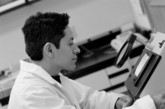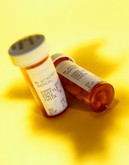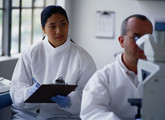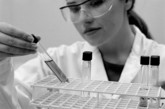Biosimilars/News
|
Posted 04/03/2010
Until recently, bacterially derived monoclonal antibodies (mAbs) were unable to recruit innate immune cells and were thus ineffective at raising an attack against tumour cells. However, Mr George Georgiou et al. of the University of Texas, Austin, found that engineered mutations in the Fc domain can improve innate immune cell recognition by mAbs manufactured in bacteria, as published in the Proceedings of the National Academy of Sciences.
The study stems from efforts to make therapeutically useful mAbs in bacteria. A key roadblock is that bacterially manufactured antibodies lack Fc region glycosylation. “Antibodies that are not glycosylated cannot be recognised by immune cells,” said Mr Georgiou. In the article it is described how aglycosylated IgG variants expressed in bacteria that selectively bind FcγRI potentiate tumour cell killing by monocyte-dendritic cells. The authors explain that the N-linked glycan of immunoglobulin G (IgG) is indispensable for the interaction of the Fc domain with Fcγ receptors on effector cells and the clearance of target cells via antibody dependent cell-mediated cytotoxicity (ADCC). E.coli-expressed, aglycosylated Fc domains bind effector FcγRs poorly and cannot elicit ADCC.































